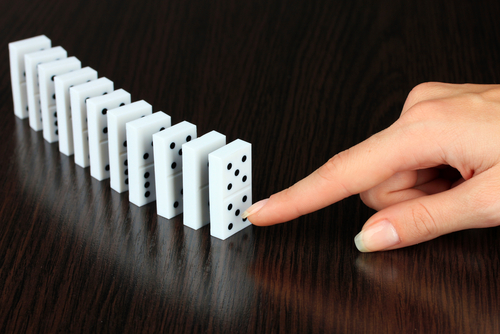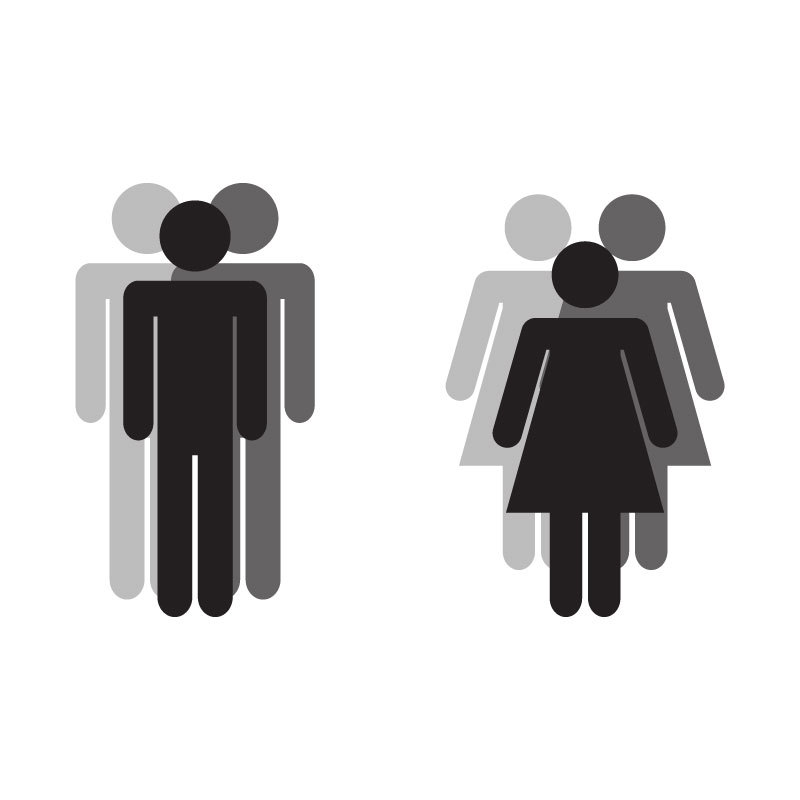KARMA
The Law of Cause and Effect

What is Karma? Science tells about the natural laws of action and of equilibrium, and other laws pertaining to balance. We know that aspects of these laws are at work in our lives. There are obviously consequences to our actions - cause and effect. The laws of nature are clearly defined by science; but the “laws of life” are subjective - experienced personally - and each of us has to work out for ourselves what they are and how we interact with them. In the teachings of the East, “karma” is the word associated with what we do and the results of our actions. “Karma” is considered part of a greater law of balance, the continual restoration of harmony in everything.
In the 1960’s, the word “karma” began to be used widely in the West. The definition wasn’t clear, and even now the popular conception of karma is vague; something like two “clouds” of good and bad karma, contributed to by our actions, which somehow affect us in the future. It is also defined many ways in Hindu, Buddhist, and other literature; for this reason, Henry T. Laurency, who has recently re-introduced Hylozoics, the esoteric teaching of Pythagoras, prefers to use the more precise term: “The Law of Sowing and Reaping”. “The Law of Cause and Effect” or colloquially, “What Goes Around Comes Around” also express this idea. In this article, I will use the term “sowing” to mean planting the seeds of future effects, and “reaping” to mean to experience the effects of one’s sowing.
Laurency’s definition of this law is simple and far-reaching. He says that every thought, word, and action has effects that return to us. He says that while many people think the law is harsh, “those who love deem it sweet”. To plant the good seeds of what we want to come back to us is to work with the law wisely. Sometimes we don’t know what will come from our actions, but the law of karma says that we will inevitably find out. This law is a primary means of learning and learning fully; to the point of an understanding that is based on experience, more than just theoretical. It says that the “Golden Rule”, “Do unto others as you would have them do unto you”, might be better named the “Golden Law”.
KARMA: (Reincarnation Provides for Completion)

Another point about the law of karma is that time is not a factor; whether the “reaping” of what we have sown takes place in this lifetime or a lifetime far in the future is not important. Needless to say, reincarnation is necessary to the perfect justice of karma. Some reaping happens immediately, such as a car accident from drinking and driving. Someone who glamourizes brutality when they create a book, movie, or game may not experience the effects until another lifetime, when they are swept up in the lives of those who were “inspired” by that brutality. We are told that in a particular lifetime we are not given more karma to clear than we can handle, though sometimes we react badly to the events and fail to get past them.
Laurency says that our reactions to suffering are a problem, that 90 percent of our suffering is unnecessary. We all too often respond to the necessary 10 percent with resentment, blame, depression, avoidance, and bitter self-pity. These responses just plant the seeds of more suffering. A stoic attitude is recommended. Meditation can help; deep in our soul consciousness we know that what has come to us is our creation, and a necessary experience.
Our human consciousness is quite limited when it comes to seeing the threads of cause and effect in our own lives, let alone in the lives of others. We are in no position to judge the karma of others by their situations. From the soul level between lifetimes, an individual might choose a difficult life because they want to advance quickly, and clear karma quickly, or not for reasons of karma at all; they may plan to dedicate the lifetime to learning compassion and humility. We are told that judging others as to why they suffer or succeed, that judging others at all, is a very bad seed of karma to plant. Obviously, we would not ourselves like to be judged.
KARMA: (Is Inescapable Impersonal Justice)

Effects can work out in surprising ways. But there is always some logic to be found. Those who steal can’t expect to retain their possessions. Those who lie become less able to recognize the truth. “Revenge” simply perpetuates suffering. Powerful politicians and business executives may treat their family and friends very well; yet harm millions through their decisions. Perhaps they think that the collective will bear the consequences, but each of us is responsible for the effects of our choices, and no one else can take on those consequences for us. Those powerful individuals may temporarily lose their right to have such power. But they may restore balance by having power again in another lifetime, and using it to help millions. Bad reaping can be offset by good sowing.
Much suffering is caused by mere thoughts and feelings. All speech that is not kind, true, and helpful, is bad sowing. Those who show kindness to all whom they meet find that they are welcome almost everywhere. This is one of the reasons that being idle to avoid bad karma is pointless. If we are idle, we risk nothing, yet we gain nothing through this law. We learn only through experience, and experience is the result of taking action.
A particularly heartless view of karma says that it is a waste of time to help sufferers; that their karma is to suffer, and we shouldn’t interfere. But Laurency says that it is always a good sowing to help alleviate suffering. Inaction in the face of real human need is bad sowing; imagine being the one suffering and meeting with others who will do nothing. An equally unfortunate view of karma is that one is somehow excused from consequences when one is the agent of fulfilling another’s bad reaping. It is better to think in terms of whether we would like the same action done to us; it more accurately reflects how the law works.
KARMA: (Our Key to Redemption)

How is the law of karma administered? How can balance be restored by blind action of a law? We are told that the law is administered intelligently, and that beings that have moved far beyond us evolutionarily are continually at work restoring balance that lesser beings have skewed while learning. And we ourselves are involved in arranging our own reaping, while on the soul level between lifetimes where we are not so caught up in the emotions and physical life. Who better than ourselves knows what we did and our intentions at the time? Though Hylozoics denies the possibility of wiping away of the consequences of our actions, as in “divine forgiveness”, it says that we can take solace in the fact that we will be given the opportunity to make right everything that we have harmed.
We are powerful creators under the law of karma; our circumstances are the result of our choices. Whether the circumstances are good or bad, they are nonetheless testimony to our power to create. Our best allies in our choices are our common sense and our conception of right; we should trust these deep instincts derived from lessons well learned over many lifetimes.
If you are reading this article on karma because you are trying to understand how life really works, the chances are that you already act from a deep knowledge that planting the seeds of love, brotherhood, and compassion gets us what we really want, and helps everyone else at the same time. If that is the case, the days of bad reaping are numbered for you, since you are now planting almost entirely the seeds of good. Through this law we learn to trust ourselves. Trusting the law of karma is trusting life; that life is ultimately fair, just, and good.
If you would like to continue your journey into the Fourth Domain (Pythagorean Hylozoics) we would like to suggest that you start with the ever-growing selection of articles to be found on this website and complete the short introductory Esoteric Minicourse course on Pythagorean Hylozoics offered. (See Esoteric Minicourse in the left-hand column under "Articles")